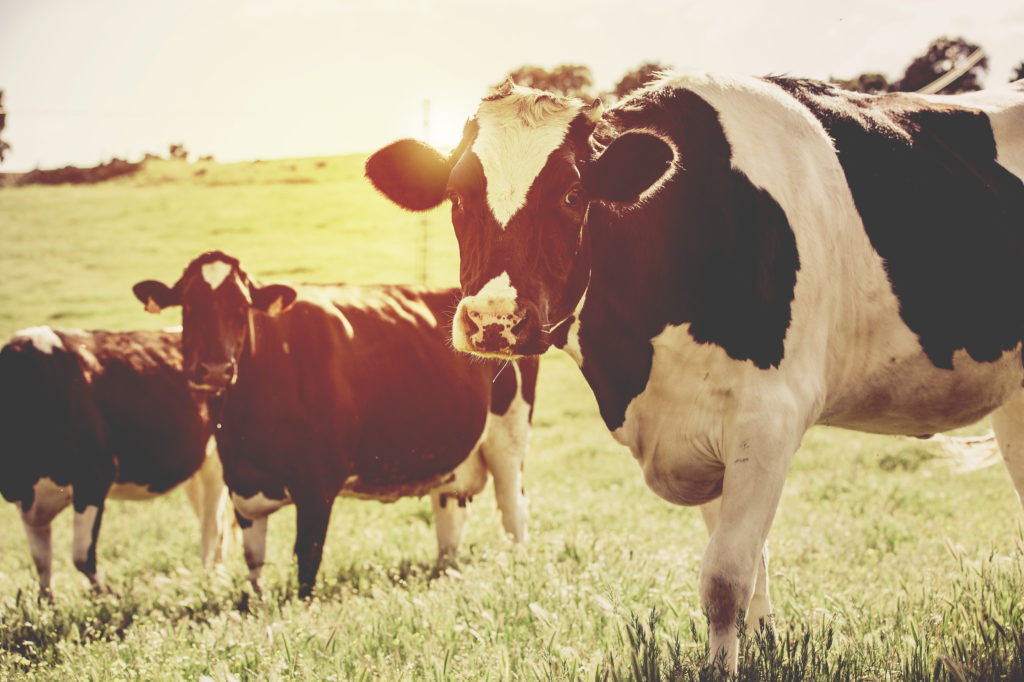


As people become more health-conscious, concerns have been raised about hormones in meat and animal by-products like dairy. Although there is no solid scientific evidence that hormones in food are dangerous to human health, many people are still concerned about how hormones find their way into food and prefer to avoid them.
It’s impossible to completely avoid hormones in meat and animal by-products because hormones occur naturally in all animals. However, it is possible to find animal products free from added synthetic or natural hormones in your local grocery store. In fact, hormones are not approved for use in animals raised in Canada, with the exception of beef cattle, for the production of meat and dairy products.
Hormone additives are only permitted in the production of beef in Canada. Poultry and pork farmers are not permitted to use hormones for their animals.
Organic cattle are not given hormones.
Canadian milk is also free of added hormones – regardless if it is organic or not. Using artificial hormones such as recombinant bovine somatotropin, or rBST , to stimulate greater milk production in dairy cows is illegal in Canada, although it is legal in places like the US. In Canada, dairy cows are kept healthy and well-fed to stimulate milk production. The main difference between organic milk and regular milk is in the feed provided. Organic dairy cows are fed a strictly organic diet.
Hormones are used to produce leaner beef. Typically, cattle convert most of their feed into fat stores. Hormones help cattle convert their feed more efficiently, which means that more of the feed is converted into muscle instead of fat. Therefore, they require less feed overall to reach the weight at which they can be sold.
The sale of veterinary hormone drug products in cattle is regulated by Health Canada. When veterinary hormone drug products are used according to the product labels, they are not expected to pose risk concerns for food safety.
Conventional Canadian beef is rich in nutrients, low in hormones, and is no more or less safe than organic beef. In fact, other foods in your fridge and pantry may contain more hormones per serving than beef, examples of these can include bread and soy products.
Health Canada currently has six approved hormonal active ingredients for use as growth promoters in beef cattle. Five of the six are delivered via a subcutaneous implant behind the ear (essentially, a pellet that is delivered under the skin behind the ear of the animal). The sixth hormone (melengestrol acetate or MGA) is delivered as a feed additive.
Hormones permitted for use on beef cattle in Canada are either natural or synthetic. Three of the six approved hormones are natural hormones you might recognize:

Although some conventional farmers may use the six hormones approved by Health Canada to help their cattle grow faster and leaner, organic cattle farmers in Canada do not use any hormones when raising their cattle. Instead, organic cattle are kept healthy and growing with a vitamin-rich diet of 100% organic feed.
There is only one exception to this rule. Organic farmers are permitted to use oxytocin when there are issues after an animal gives birth (such as issues with the placenta or milk production). There is a 14-day withdrawal period after oxytocin is used and it is only used when the safety of birthing mothers and infant animals are at risk.
Organic beef can often be found on the same supermarket shelves as conventional beef. You can also find it in local butcher shops. When shopping for organic, remember to look for the Canada Organic Logo.
Do you want to learn more about what organically-grown means in Alberta? Would you value monthly updates on Alberta’s local organic sector – including legislation, farming practices, GMO regulation, and more? Now you can receive it the way you want to:
[/vc_column_text][/vc_column][/vc_row]



Disclaimer: Opinions expressed in this document are those of the author and not necessarily those of the Governments of Canada and of Alberta. The Government of Canada, the Alberta Ministry of Agriculture and Forestry, and its directors, agents, employees, or contractors will not be liable for any claims, damages, or losses of any kind whatsoever arising out of the use of, or reliance upon, this information.
![]() More Get the Facts
More Get the Facts
Apr 9 | Get the Facts
This article was written prior to the tragic passing of Cathy Halonen, and is being published in remembrance of her. Her passion and dedication to o
Read MoreMar 30 | Get the Facts
Walking through grocery stores, you’ve seen food with marketing phrases like “all-natural," “sustainably grown," “pasture raised," “hormon
Read MoreJan 14 | Get the Facts
There’s no doubt about it: antibiotics are life-saving medications that play an important role in the lives of humans and animals alike. They’
Read More